US exits WHO despite pandemic
Superpower deserts responsibility, jeopardizes global COVID-19 fight
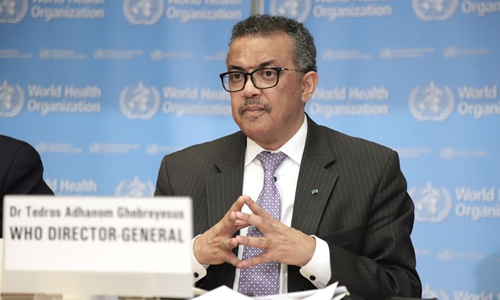
File picture shows World Health Organization (WHO) Director-General Tedros Adhanom Ghebreyesus speaks at a daily briefing in Geneva, Switzerland, on March 9, 2020. (Photo by Li Ye/Xinhua)
"American politics is becoming a game of public opinion and entertainment." The US officially announced its withdrawal from the WHO on Tuesday, but international observers do not seem to take it as a "serious matter." Maybe the US will take back the announcement half a year later, they said, as the world has long been accustomed to taking decision-making of high-level US politicians as a farce given Trump government's impulsiveness.
Chinese experts said despite opposition from scholars, some US politicians and their allies, the Trump administration still withdrew from WHO, which shows the US has totally abandoned its responsibility as the world's sole superpower, and revealed its "rogue characteristics" after they failed to get the WHO's support to scapegoat China for US failed pandemic control.
The Trump administration Tuesday notified Congress and the UN of its decision, which will take effect on July 6, 2021. However, it may not be easy to exit from the international organization, observers said.
The US became a member of the WHO in 1948, and is one the countries that helped draft its constitution. It has been the biggest contributor to WHO, and also owes the most from its annual contributions. The WHO website said the US owes the organization $231,533,644 in contributions.
The WHO does not explicit accept withdrawals from its member states. A Joint Resolution of the US Congress requires the US to meet two provisions for the withdrawal: the US should give one year's notice of its withdrawal, and its financial obligations to the WHO should be met in full for the organization's current fiscal year.
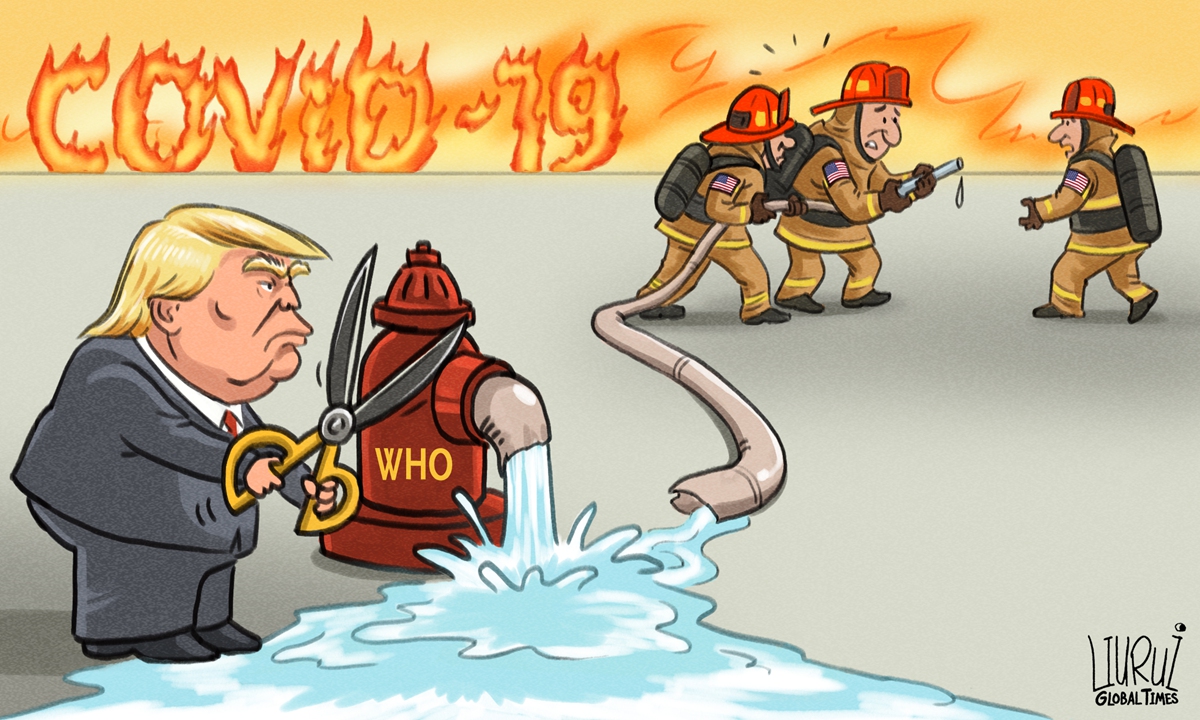
Cutting ties with WHO as US' COVID-19 cases approached 3 million? Illustration: GT
Li Haidong, a professor at the Institute of International Relations of the China Foreign Affairs University, said that the House of Representatives has the final say on whether it will pay the money to the WHO as a required financial obligation. If the funds cannot be paid on time, the US won't be able to legally leave the organization.
Even if US President Donald Trump wins reelection, he may also take back the decision before the withdrawal agreement takes effect in 2021, experts noted.
About 750 scholars and experts in global public health, US constitutional law and international law and relations wrote to Congress a letter dated June 30 expressing their opposition to the withdrawal. They called for prompt hearings to address the question of whether the unilateral withdrawal from the WHO is legal or in the national interest.
Jeopardizing global health system
Developing countries will suffer the most from the US withdrawal, which shows that the Trump administration prioritizes its own political interests over global public health, experts noted.
The US has been a major financial contributor and technical supporting member of the WHO, and American experts play a leading role in offering important health policy support and help to developing countries where public health systems are weak, Zeng Guang, the chief epidemiologist of the Chinese Center for Disease Control and Prevention, told the Global Times.
"Supporting the WHO is the most successful investment that the US has ever made with the least amount of money. This has brought the US a good international reputation, gaining much more for the US than pouring massive funds into poor countries," Zeng said.
The US withdrawal is a show of "pettiness" and lacks "political foresight," Zeng said, believing the move is not likely to prompt other countries to leave the organization.
From an international perspective, the biggest damage done by the US withdrawal is sabotaging its own international reputation, while domestically, it means that the Trump administration has completely abandoned its response to the epidemic, Lü Xiang, a research fellow at the Chinese Academy of Social Sciences in Beijing, told the Global Times.
The number of confirmed COVID-19 cases in the US exceeded three million on Tuesday, with deaths surpassing 131,000, US media reported. The country has the largest number of infections globally.
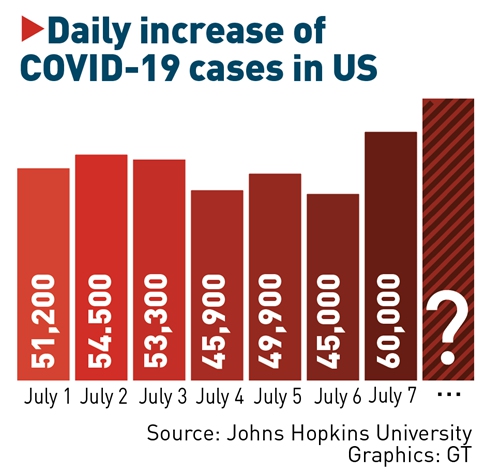
According to Lü's calculation, since June 8, the number of new COVID-19 infections in the state of Texas has increased by 182 percent, Florida's has increased by 229 percent, and even in the state of Arizona, which only has 7 million people, the number of COVID-19 infections exceeded 100,000, which is "scary," Lü said.
Lü said that the current epidemic epicenter in the US is also shifting from the northeast to the south, with Texas and Florida, considered "Republican states," seeing the largest number of infections.
Texas has now become a "swing state" in the US election due to the impact of the epidemic. Since 1976, no Democratic presidential candidate has won in Texas, Lü said. Trump had "kidnapped" the Republican Party by withdrawing from the WHO.
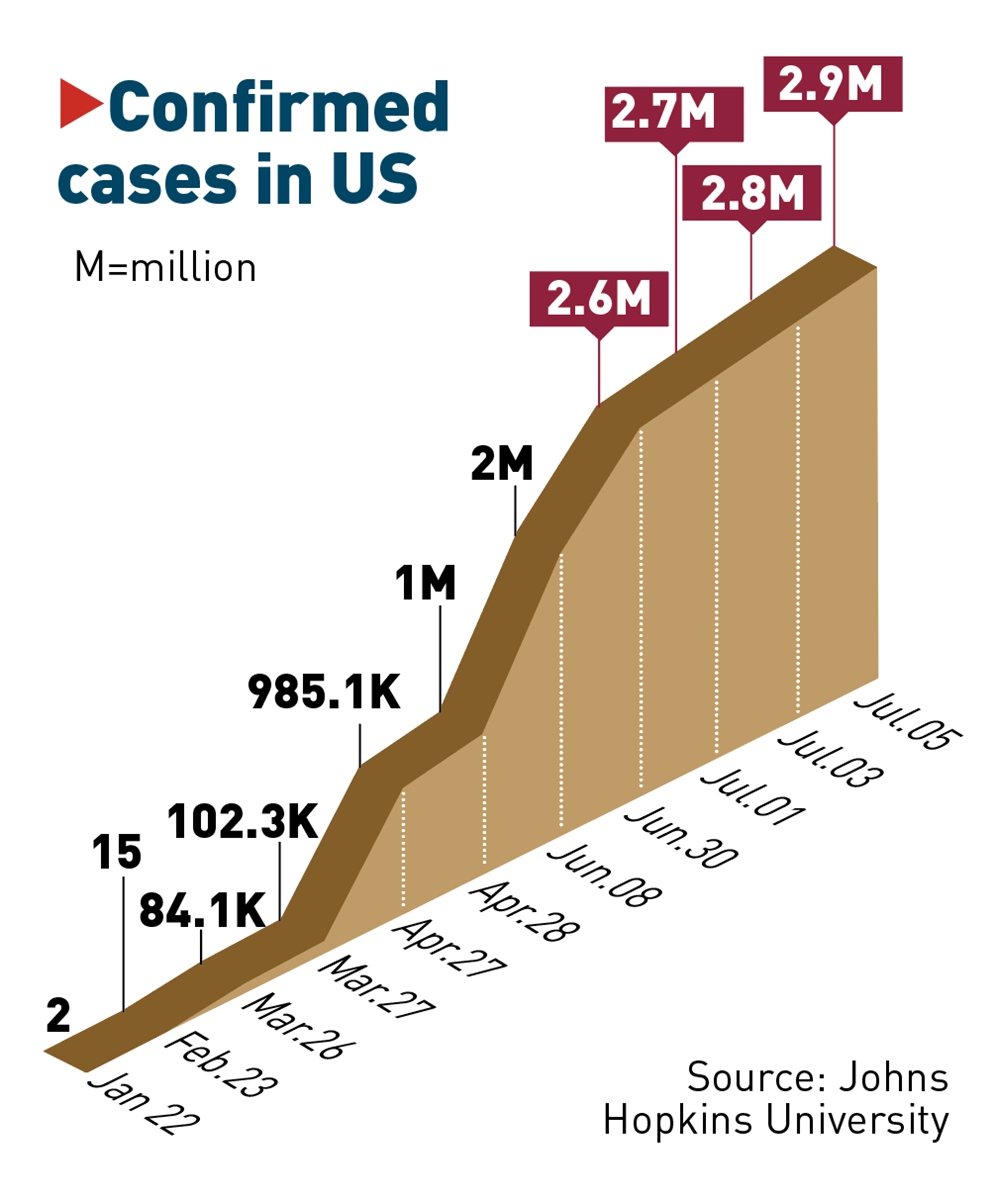
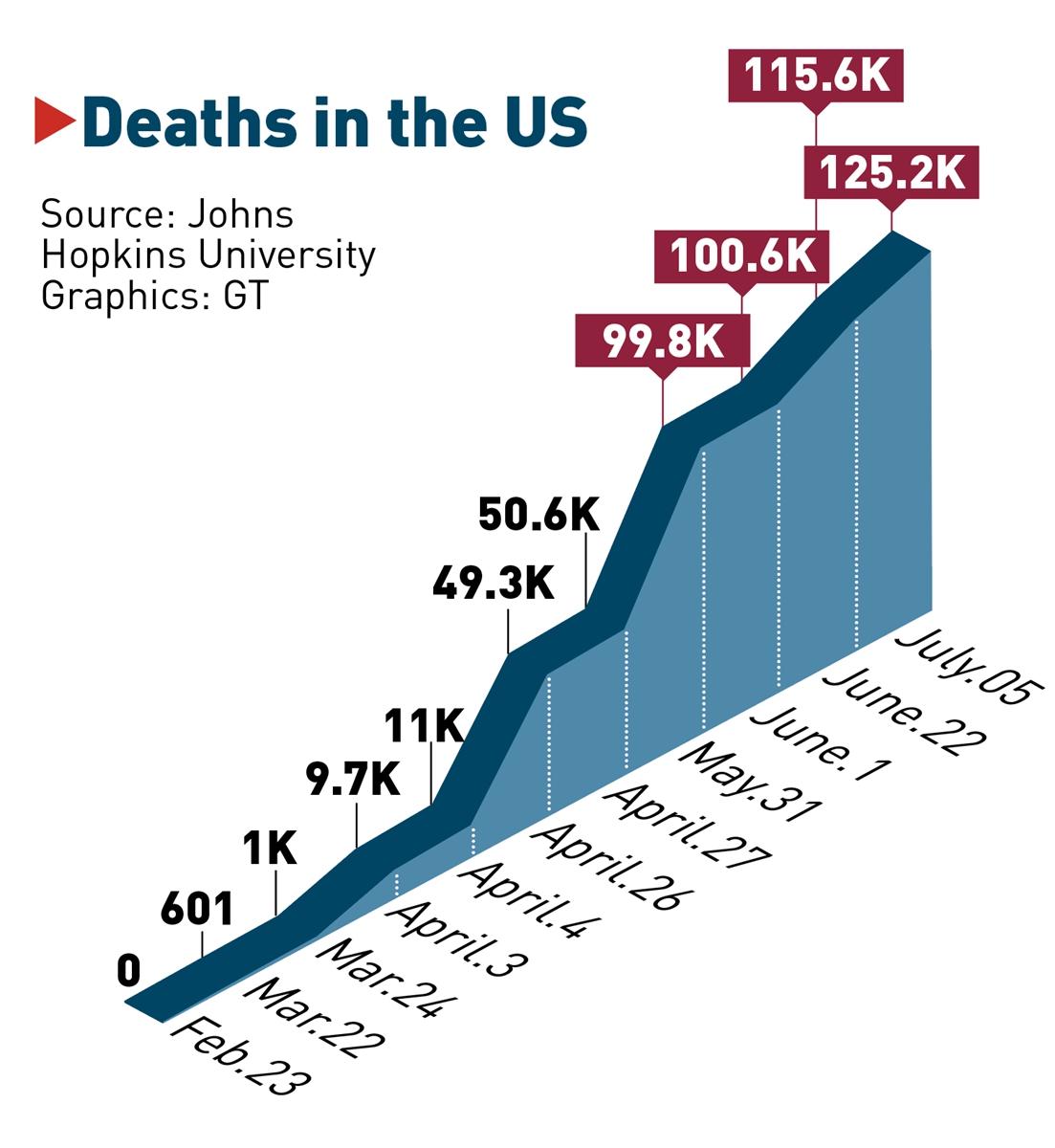
Moreover, leaving the WHO will also hinder the US from having cooperation with the international organization and international community. The US Centers for Disease Control and Prevention relies heavily on the WHO to identity COVID-19 outbreaks from all over the world and share global epidemic data, including viral genomic sequences and vaccines, observers said.
Foreign Policy reported on Tuesday that terminating the relationship means the global disease surveillance system will not be available for the US, which will now find it difficult to work with other countries under the WHO framework.
It also remains a question whether the US will cooperate with the WHO in tracing the origin of the novel coronavirus. The US has reported the most confirmed COVID-19 cases during the pandemic, and its absence in the origin tracing work will make the work incomplete. The withdrawal would also make it difficult for the US to access a final COVID-19 vaccine if it is created successfully outside America, experts warned.
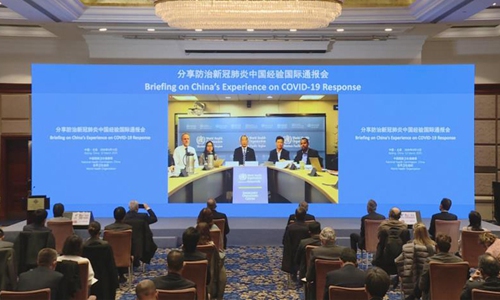
China's National Health Commission (NHC) and the World Health Organization (WHO) jointly hold a video conference to brief China's experience on COVID-19 response to international experts from various countries and representatives of some embassies in China and international organizations on Thursday. Photo: screenshot of the NHC
Unilateral move
The US withdrawal is not surprising, both from the perspective of Trump's personal interests and the recently deteriorating US epidemic situation, Chinese experts said.
Experts called the withdrawal "a process of political manipulation, serving Trump's needs for the upcoming elections" after the administration failed to properly control the US epidemic, and instead scapegoat China and WHO.
It's another example of a unilateral US retreat from an international organization. It harms the efforts of the world in its fight against the epidemic and severely harms developing nations that most need international support, Chinese Foreign Ministry spokesperson Zhao Lijian said at a press conference on Wednesday.
The move revealed that the Trump administration is angry after the WHO refused to support them in smearing and turning China into a scapegoat on the pandemic.
Since Trump took office, the US political system has turned into a game of public opinion and entertainment rather than a mechanism to unite society and solve social problems, Chinese experts noted. Such poor tricks show that the US political system has turned into a state of rigidity and "senile dementia."
Apart from the withdrawal from the WHO, the US has also terminated its participation in various international organizations under the UN framework, including the UNESCO in 2019.
Such actions by the US are a show of contempt for the core role and functions of the UN in handling global issues, Li said, saying it once again reflects the Trump administration's stubborn nationalism, and its dangerous policy choice of unilateralism.